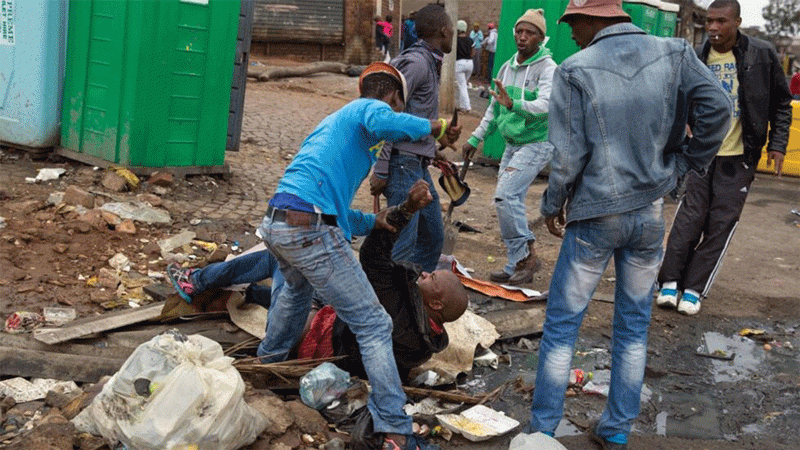
AS the Zimbabwe Coalition on Debt and Development (Zimcodd), we believe it is high time authorities address some of the factors militating against sustainable livelihoods.
Government should address lack of organisation. Despite women being the majority of smallholder farmers, the patriarchal nature of the Zimbabwean society has often excluded them in decision-making positions and processes.
In areas such as Chipinge, Mwenezi, Gokwe, Chimanimani, Honde valley and Mutasa, most women smallholder farmers are not organised in commodity associations and are not affiliated to farmers unions.
This makes farmers vulnerable and unable to negotiate just trade practices.
There is also the need to address lack of information. There remains an information gap between what smallholder farmers are producing and requirements of the export market in regards to quality of produce, handling mechanisms and meeting the required quantities.
Lack of information and lack of access to export markets where they can sell their produce at premium rates militates against their right to sustainable livelihoods.
This is because once they fail to meet the minimum internationally recognised standards, their produce remains fit for the domestic and local market.
The other thing that needs being looked into is the limited agricultural extension services. Across several districts, agricultural extension services are severely limited with one Agritex officer supporting at least one ward each with an average population of 400 households.
- Chief Nyangazonke reads riot act against corrupt village heads under his jurisdiction
- Zanu PF activists hijacks Govt‘s Pfumvudza programme
- News in depth: ‘It’s a grand heist’: Contractors, insurance firms fleece tobacco farmers
- Chief Nyangazonke reads riot act against corrupt village heads under his jurisdiction
Keep Reading
Their limited capacity also speaks to inadequate resources and equipment to carry out extension support while the current agricultural extension system is biased towards the production of traditional and staple grains.
And then there is lack of government support, particularly in terms of both policy and practice.
This is evidenced by less attention being given to high value crop production due to lack of a deliberate policy stance on horticulture production while many government schemes are skewed towards grain and wheat production.
Also, the issue of value addition needs being looked into. Smallholder farmers are predominantly producing for the domestic commercial supply as they sell their produce mainly in their raw state.
These farmers are adversely affected by inefficiencies in production, processing and marketing.
This exposes them to external market forces, and without power to collectively challenge strong corporations that are manipulative, thus they remain in poverty.
There is also the issue of women not owning the means of production. Only 30% of women own A1 and A2 farms, while 32% have economic decision power.
As such, women, who are the majority smallholder farmers, are subjected to unfair trade norms.
In the case of Honde Valley, Rusitu and Chipinge, smallholder farmers are mainly selling their produce (bananas and avocados) to local markets and distant markets through middle men who, in turn, sell to retail outlets and international markets at profitable prices.
Ultimately, these smallholder producers bearing the brunt of production do not derive much value from their work as they get less than 15% of the value, while greater value of 85%+ is enjoyed and shared across other value chain actors such as middlemen, transporters, processors, wholesalers and retailers. - Zimcodd
Govt must invest heavily in mental healthRECENT results of a mental health investment case demonstrate that Zimbabwe could reduce the socioeconomic consequences of mental health conditions by investing in a set of evidence-based intervention packages for leading mental health conditions.
The investment would significantly improve the quality of life for people with mental health conditions, lengthen life expectancy and reduce economic losses for the country.
Recommendations for actions to be taken by the government of Zimbabwe to achieve these tangible benefits include:
- Strengthen leadership and governance for mental health;
- Increase community awareness of mental health conditions, and encourage multi-sector engagement to increase education and awareness of mental health;
- Increase the capacity of the health system and the health-care workforce to provide highquality mental health interventions, and integrate mental healthcare into primary health care and the provision of community services;
- Invest in evidence-based, cost-effective clinical and population-based mental health interventions modelled in the investment case;
- Invest in health information systems and technology for collecting data on mental health and research; and,
- Ensure that support for mental health patients in emergencies is built into Zimbabwe’s mental health system and services.
All the recommendations suggested in the report are aligned with those of the World Health Organisation Special Initiative for Mental Health for Zimbabwe. - Relief Web
Open letter to Transport ministerAS a representative of Chitungwiza residents, I note with disdain the unnecessary erection of a speed hump along Seke Road in front of the Kabrit military gate.
The speed hump was not well-thought-out and is now causing unnecessary congestion along Seke Road, especially during peak hours.
No right-thinking citizen would place a hump in that place, unless it is meant to stroke egos of certain individuals in positions of authority.
There is no heavy pedestrian movement. In fact, it is a restricted area for ordinary civilians.
This area is now largely characterised by accidents as the hump is on a highway.
We, therefore, demand that this hump be removed forthwith as there are enough pothole problems to deal with on this road.
The undesirable consequence is that motor vehicles are now creating extra lanes off the road to beat the congestion.
If anything, the area desiring a speed hump is adjacent to Koala Park.
I implore authorities to implement decisions after a well-thought-out process.
These arbitrary and dictatorial tendencies are retrogressive and counter-productive. Maxwell Mavhunga, Chitungwiza South MP
Food security likely to improve as lean season endsTHE findings of the 2023 First Round Crop and Livestock Report shows that the total area planted under all crops marginally increased by 8% from 3 387 038 hectares in 2021/22 season to 3 674 149 hectares in 2022/23.
The highest increase was reported for sunflower (206%) and finger millet (56%).
The report also notes that less rainfall and cropping activities were reported in the southern parts of the country across Matabeleland South and North, Masvingo and parts of Manicaland provinces.
Meanwhile, northern provinces received above-normal rainfall in January and February, and some parts experienced water logging and soil leaching, which could slightly reduce potential harvest in these areas.
Recent stability in the cost of the minimum expenditure basket observed over the last three months comes as a reprieve for poor and vulnerable households who struggle to meet their minimum food requirements on a daily basis.
The country was in a state of deflation in February where monthly inflation was pegged at -1,6% to a blended monthly inflation of 0,1% in March.
Blended headline inflation dropped from 92% in February to 88% in March, but remains relatively high when compared to a year ago when it would have been 30%.
According to World Food Programme (WFP)’s HungerMap LIVE, approximately 3,9 million people were estimated to be facing insufficient food consumption during the first week of April 2023, decreasing by almost 0,3 million people when compared to 4,2 million in the first week of March, and nearly one million from the 4,8 million reported during the first week of January 2023.
Famine Early Warning Systems Network findings shows that in March typical deficit-producing areas were experiencing Integrated Food Security Phase Classification Crisis (Phase 3) food security outcomes as the lean season comes to an end and is likely to improve from April when the harvest begins.
The food poverty and total consumption poverty lines, monitored by the Zimbabwe National Statistics Agency, have been stable over the last three months at $25 660,53 and $29 778,08, respectively.
The cost of the monitored minimum expenditure food basket remained stable in both rural and urban markets.
The price of fuel rose by about 7% in Zimdollar terms and remained stable in United States dollar. The price and availability of hygiene non-food items on average remained stable. - WFP











